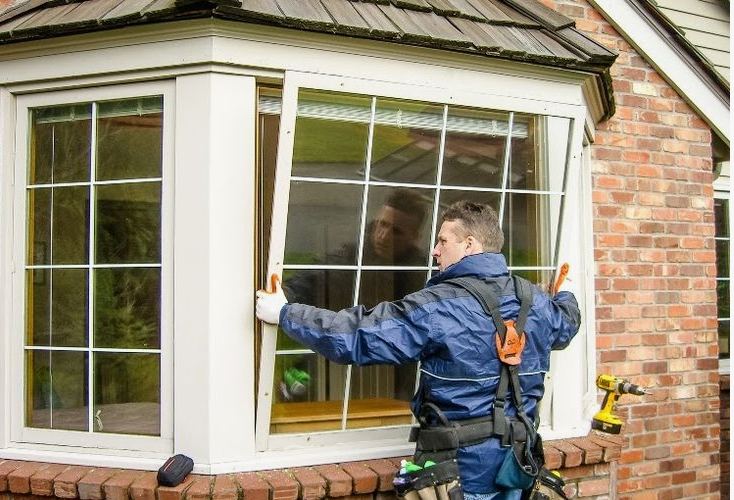Introduction
Windows are essential components of any building, providing natural light, ventilation, and aesthetic appeal. Regular maintenance ensures their longevity and functionality. This guide explores effective strategies for maintaining your windows.
1. Importance of Window Maintenance
Window maintenance will keep them working properly and looking great. Well-maintained windows cut down on drafts; therefore, they cut utility expenses, prevent long-term damage like rotting frames or broken seals, and ensure to save your property from safety and security breaches.
2. Clean Your Windows
The greatest benefit of clean windows aside from a great aesthetic appearance is an enhanced entry of natural light into your space. For regular cleaning, use mild soap dissolved in warm water. Use a microfiber cloth or squeegee for streakless results. Avoid the use of abrasive materials, which may scratch the glass or damage the frames.
3. Damage Inspection
Routinely inspect your windows to identify cracks, broken seals, or distorted frames. Observe the general condition of locks, latches, and hinges. The earlier the issue is detected, the less expensive the repair will be. For more significant problems that may impair functionality or safety, bring in a professional to inspect.
4. Sealing and Weatherproofing
This will ensure that your windows are also energy-efficient as well as draft-free. Check for gaps around the frames and reseal them using caulking or weather stripping. These materials help prevent air leakage, reduce heating and cooling costs, as well as keeping dust and pests out of your house.
5. Lubricating Moving Parts
Apply lubricant to your moving window parts including hinges, tracks, and locks for smooth operation. For metal parts, silicone lubricants are good, while oil-based products attract dust and grime; thus, avoiding them is advisable. Prevention of rusting and easy operation result from regular lubrication.
6. Maintaining Window Frames
Window frames, whether wood, vinyl, or aluminum, require special care. Wooden frames must be repainted or resealed to prevent rotting. Vinyl window frames should be washed with mild detergents to remove grime from their surface. Aluminum window frames can be polished to prevent corrosion and loss of shine.
7. Replacing Broken or Fogged Glass
Broken and misty glasses affect the insulation and aesthetics of windows. Chipped panes should be replaced promptly to ensure safety and energy efficiency. For frosted double-glazed windows, seek professional services to reseal or replace the glass to regain the clarity and insulation.
8. Professional Maintenance Services
Sometimes, more technical assistance is required for major repairs or specialized service. Window professionals can handle tasks like replacing shattered glass, replacing a damaged frame, or executing energy efficiency upgrades. Routine professional service extends the lifespan of your windows.
9. Seasonal Maintenance Tips
Adjust your window maintenance routine with regard to the season. In winter season, inspect for drafts and seal gaps to warm up your house. Clean window screens and inspect for damage during summer season. Preparing windows for seasonal changes makes sure that your comfort and efficiency are guaranteed throughout the year.
FAQs
1. How often should I clean my windows?
It’s best to clean your windows every two to three months. However, in areas prone to dust or pollution, monthly cleaning might be necessary to maintain clarity and cleanliness.
2. Can I fix a drafty window without replacing it?
Yes, drafty windows can often be fixed by resealing them with caulk or applying weatherstripping. If the issue persists, consult a professional for further inspection.
3. What is the best way to prevent window fogging?
Fogging usually occurs due to broken seals in double-pane windows. Ensure seals are intact and consider using a dehumidifier in high-humidity areas. If fogging persists, replacing the glass may be necessary.


